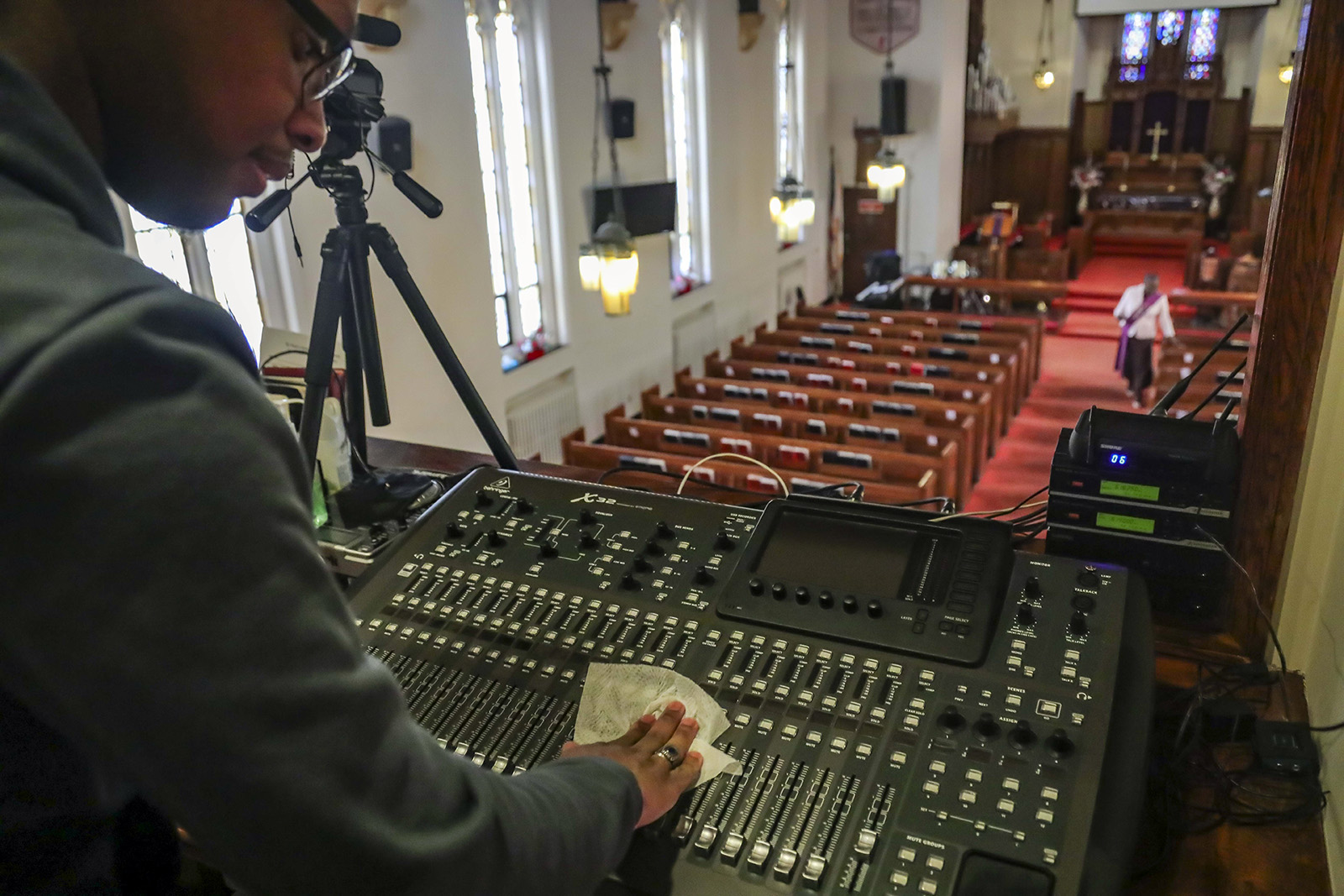(RNS) — For a small church, Bethel African Methodist Episcopal Church in Downingtown, Pennsylvania, has a surprising reach.
Most church members live in and around Downingtown, a small town about an hour west of Philadelphia. Some live as far away as Bermuda.
“But that’s one of the beauties that has come out of the pandemic,” Downingtown pastor Ivy Berry said. “We can meet in the sanctuary, but still maintain a worship presence via Zoom and on Facebook Live, so members who may not be able to travel to the sanctuary can still receive the same worship service.”
A report on churches and technology during the pandemic found that by offering online services, churches were able to expand their reach, often connecting with people outside their community or reconnecting with former members who had moved away. Even small congregations that had once struggled to reach outside the walls of the church were able to expand their reach, according to “When Pastors Put on the ‘Tech Hat,” a report from the Tech in Churches research project, led by Heidi Campbell, professor of communication at Texas A&M University.
“With the shift online, churches were shocked to discover the ways that an online service can become a wide-reaching net to whoever is interested in tuning in or watching,” according to researchers. “One pastor described this widening reach and shift as ‘shut-ins being no longer shut out.’”
For Anna Caudill, a special education advocate and adoptive mom from Nashville, Tennessee, online church has been a godsend, a way to stay connected to her church even if she and her family can’t be there in person.
Caudill said she’s been part of a church her whole life. She’s taught Sunday school, gone on mission trips and cherishes belonging to a Christian community and gathering together on a weekly basis. That’s been difficult in recent years due to health concerns in her family, which have kept her from being as active as she’d like to be.
When COVID-19 hit, her pulmonologist told her to stay away from church and other public gatherings.
“Don’t go anywhere,” she recalled him saying.
While her church is meeting in person, masks aren’t required, though the church has set aside space for people who need masks or other precautions. That’s made meeting in person a point of tension, she said, and sent a message that people with disabilities or health concerns are a nuisance or problem to be handled, rather than full members of the community — something that happens all too often in churches, she said.
“There’s no deliberate, intentional consideration unless disabled people are in the room when decisions are made,” she said.

Multimedia technician Joseph Stoute, 21, uses a disinfectant wipe to clean the audio equipment at St. Paul’s Methodist Church in Brooklyn, where he directed a livestream online broadcast for homebound congregants due to citywide restrictions aimed at controlling the COVID-19 outbreak, March 22, 2020, in New York. (AP Photo/Bebeto Matthews)
A recent New York Times column suggested churches should drop online services, claiming that offering both online and in-person services risks turning Sunday worship into a consumer experience.
“Online church, while it was necessary for a season, diminishes worship and us as people,” wrote Tish Harrison Warren, an Anglican Church in North America priest and award-winning author. “We seek to worship wholly — with heart, soul, mind and strength — and embodiment is an irreducible part of that wholeness.”

